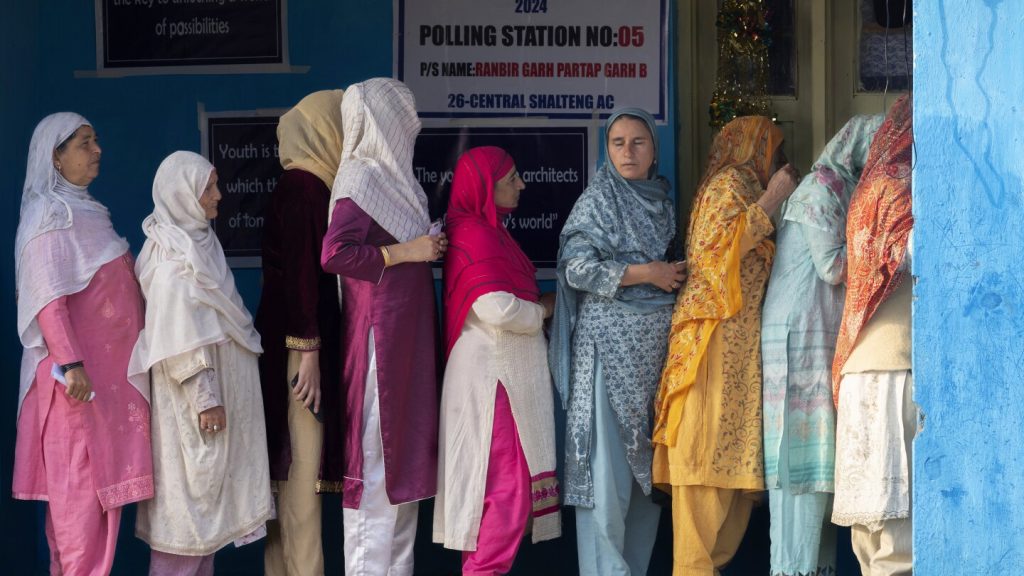The final phase of voting for a local government in Indian-controlled Kashmir has concluded, marking the first such election since Prime Minister Narendra Modi’s government revoked the region’s special status five years ago. Over 3.9 million residents were eligible to cast their votes to choose 40 lawmakers out of 415 candidates across seven districts during this phase. This election is significant as it is the first in a decade and the first since the region lost its semi-autonomous status in 2019. The turnout was recorded at about 69%, with thousands of armed government forces patrolling the voting districts and guarding over 5,000 polling stations.
Following India’s move in 2019, Kashmir was downgraded and divided into two centrally governed union territories, Ladakh and Jammu-Kashmir. This decision, which was supported by Modi’s government and many in India, was met with opposition in Kashmir, where it was viewed as an attack on the region’s identity and autonomy. The region has been under heightened tensions since then, with civil liberties restricted and the media silenced. Kashmir has been a contentious issue between India and Pakistan, with both countries administering parts of the territory while claiming it in its entirety. The two nuclear-armed rivals have engaged in multiple conflicts over Kashmir since gaining independence from British colonial rule in 1947.
In the Jammu region, tens of thousands of Pakistani Hindu refugees are voting for the first time in any regional election since their migration in 1947. These refugees, known as West Pakistan Refugees, were granted Indian citizenship and voting rights in national elections. However, Kashmir’s former special status limited voting rights to descendants of residents from 1934 before the changes in 2019. Many refugees expressed their joy at being able to participate in the election, with one first-time voter describing it as a “Diwali” or a festival of light symbolizing victory over darkness. The ruling BJP, which has a strong presence in Jammu, is contesting all seats in the region but has less support in the Kashmir Valley.
As the election progresses, there are concerns about political manipulation, with many independent candidates standing in the Kashmir Valley. Some voters expressed frustration at the absence of local representatives for many years and saw the ballot as a way to voice their dissent against India’s actions in the region. The election aims to establish a local government in Kashmir, transitioning power from New Delhi to the assembly. However, Kashmir will remain a union territory directly controlled by the federal government until its statehood is restored. The conflict in the region has been ongoing for decades, with militants fighting against Indian rule and seeking either Pakistani control or independence. The election results are expected to be announced shortly after the votes are counted next week.
Overall, the election in Indian-controlled Kashmir represents an important step towards local governance in the region, following the revocation of its special status in 2019. The turnout during the voting phases reflects the desire of Kashmiris to have a say in their local affairs and the need to restore their autonomy. The results of the election will have significant implications for the region’s future and its relationship with the Indian government. Despite the challenges and tensions, the electoral process highlights the democratic aspirations of the people of Kashmir and the complex dynamics between India, Pakistan, and the residents of the contested territory.


